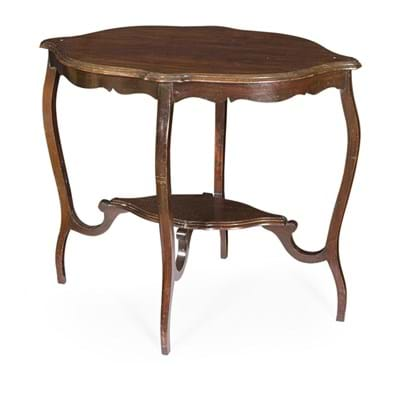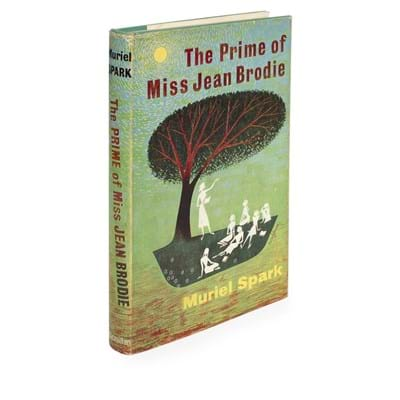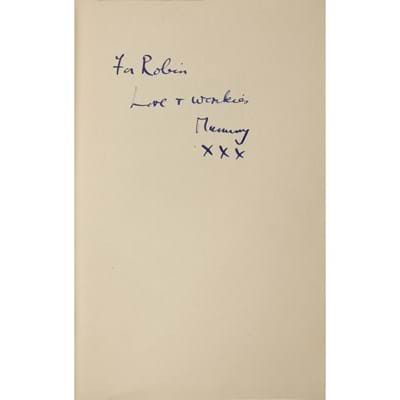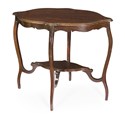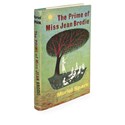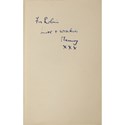Well, to be precise, Edinburgh auction house Lyon & Turnbull states the table it is offering at £300-400 in the May 17 sale is “said to be the one at which Muriel Spark wrote The Prime of Miss Jean Brodie”.
However, it does have a solid family provenance, being part of a 12-lot collection of furniture, books and photographs from the estate of her son, the late Samuel HL Spark, known as Robin Spark.
The table was in Muriel’s parents’ home in Brunstfield, Edinburgh. It is thought to be at this table that she spent six weeks working on her most famous novel, published in 1961. It became a play and film in 1969.
The collection on offer in this auction includes a number of novels written by Muriel. The novels are signed and many have personal messages to her son. They include The Prime of Miss Jean Brodie, The Comforters, Robinson, The Go-Away Bird, The Ballad of Peckham Rye and The Very Fine Clock.
A selection of photographs from Muriel to her son features, again many with personal messages between mother and son.
Spark of genius
Muriel Spark was born Muriel Camberg in Brunstfield, on February 1, 1918, to a Jewish engineer father and an English, music-teacher mother. She was educated at James Gillespie’s School for Girls and took a writing course at Heriot Watt College, teaching English for a short time.
On September 3, 1937 she married Sidney Oswald Spark, following him to live in Southern Rhodesia. Their son Samuel Robin was born in July 1938. In 1940 Muriel left Sidney and Robin. She returned to Britain in early 1944, taking residence at the Helena Club in London; years later the club would be her inspiration for the fictional May of Teck Club in The Girls of Slender Means.
She worked in Intelligence for the remainder of the Second World War. She provided money at regular intervals to support her son. Spark maintained it was her intention for her family to set up home in England, but Robin returned to Britain with his father, later to be brought up by his maternal grandparents in Scotland.
According to a 2006 obituary in the Guardian: “Like many women artists, Muriel Spark found her voice comparatively late in a hitherto difficult life. She was 39, a struggling single mother and recently recovered from a serious breakdown when the first of her more than 20 novels, The Comforters, was published in 1957.”
It added: “The success of …Miss Jean Brodie, in its Broadway, film and television versions, assured her financial security for life, and a place in the most hallowed annals of Scottish and English literature. She became a dame in 1993.”
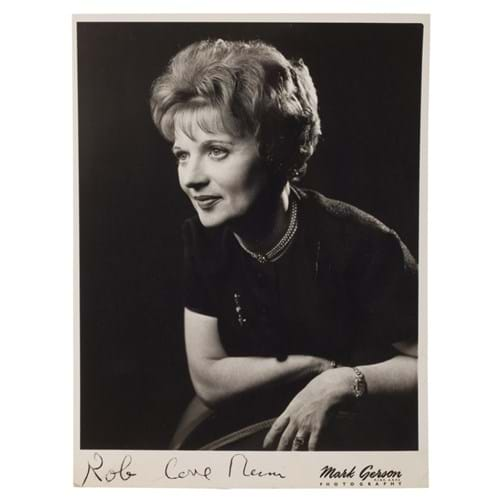
Professional portrait of Muriel Spark inscribed to her son Robin. It is part of an archive of documents from the late Robin Spark collection on offer at Lyon & Turnbull, estimated at £200-300.
Scottish artist
Robin (1938-2016) became a well-known Scottish artist, prolific in his work, creating more than 1000 paintings, photographs, and short texts and articles about art, Jewish culture, and his own family.
A pastel on paper by him, titled Diana, 20in x 2ft 3in (50cm x 69cm), sold for £280 at a McTear’s auction in Glasgow last September.
The Guardian obit said that, around the time of his mother's conversion to Catholicism, Robin “embraced Judaism, claiming that his maternal grandmother was Jewish thus making him a Jew; Spark always maintained that although her father was Jewish, her mother was not. This dispute - about his, and her, heritage - became a public feud, with Spark donating letters from Robin to the National Library of Scotland. Their estrangement lasted into her later years”.


